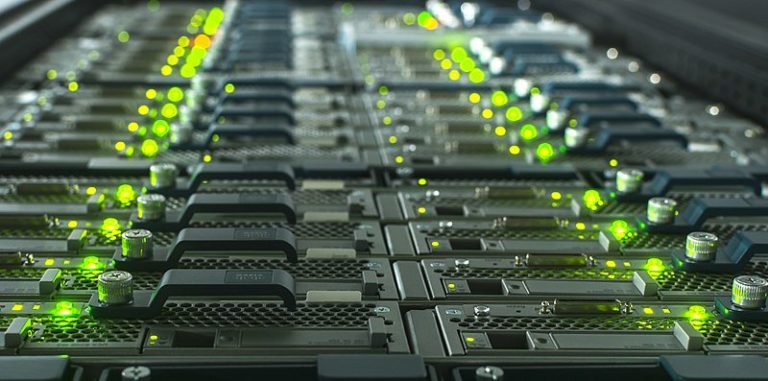Be aware of Wi-Fi security measures
As technology continues to dominate our lives, many people have begun to question some of the negatives that are associated with it. But, this isn’t modern anxiety at all. Even in the 1920s, Western culture was identifying these worries in different creative mediums. Films like Metropolis were concerned with the control that technology could pose in our everyday life, especially in the form of surveillance. And, there’s no arguing with the fact that in a hundred years we have taken many substantial technological leaps. But how concerned should we be?
Almost every home is now equipped with a Wi-Fi router, a necessary source for all of our internet habits. But many of us are unaware of how these types of machines truly work, and unfortunately, it’s common to hear a lot of misinformation. In this article, we hope to give you a clearer picture of the ways in which Wi-Fi can be much smarter than many of us thought and what the implications of these intelligent devices are in our daily life.
Detecting Language
Language is one of the most important tools we have to communicate with. We don’t only use it to convey the things we have done physically but also how we feel mentally and emotionally. The words spoken in our house have the potential to be extremely personal and intimate. How would you feel if a machine in your home had access to all these conversations? We promise this isn’t an episode of black mirror.
While a Wi-Fi device may not be able to hear audio, it’s possible that it can instead ‘see’ the movements of a human’s mouth. One study that attempted to show this was Guanhua Wang et al. in their essay “We Can Hear You with WiFi!” They found that Wi-Fi signals can be used to detect changes in the environment, and this includes mouth movements. In essence, the device can lip-read using Channel State Information (CSI), a ‘waveform-based human identification’. There’s even evidence to suggest that signal changes can be detected through walls, so this doesn’t only affect a single room but potentially the house.
Browser History
Another way your Wi-Fi can access information about you is through your browser history. While you are connected to your Wi-Fi, your broadband provider is able to see every website you visit and how frequently you visit it. Not only this, but if you visit unencrypted websites, the network admin can even discover your personal data such as passwords, by using a packet sniffer. That’s why it is essential to use caution when connecting to public networks while you are inputting personal data.
Your browser history can provide a lot of details about your lifestyle, likes, dislikes, and personal data. Not many people find this level of intrusion acceptable. If you don’t feel comfortable with your provider being able to access this information, then you do have a few options. It’s not enough to delete your history, or even clear the cookies and cache, but you can choose to purchase a VPN.
A VPN, or Virtual Private Network, can protect your privacy on public networks by using both data encryption and IP address change. When you change your IP address, you are changing your virtual location, one which your network provider does that have access to. Therefore they won’t be able to obtain data information from your online activity. Another benefit is that by using a VPN, you may be able to access websites that your internet provider may have blocked or disallowed permission.
Physical Presence
How much time do you spend in the kitchen? What time of day do you get home? These may be only a few questions that your Wi-Fi could answer. Researchers tested the theory that a Wi-Fi device could accurately identify when someone walks into the room. Tong Xin et al., in their paper “FreeSense: Indoor Human Identification with WiFi Signals” found that when the system is trained to identify a particular body shape with FreeSense, that the system could identify this individual 95 percent of the time.
Similar systems have been introduced in other countries with even better results, believing in the future Wi-Fi should be able to detect one individual in a group of ten. The inspiration behind the project is safety; they think that it could potentially identify intruders and be a force for positive. But others are still skeptical about giving companies so much information about their daily schedule and habits.
Another system called WiKey has been built to identify what letter or symbols a person was pressing on a keyboard by using finger movement. The system worked almost flawlessly and had a 93.5% success rate at guessing the correct movement. Systems like this are surprisingly easy to create with an available router, meaning we could see even more built in the future.
Final Thoughts on How Your Wi-Fi Can Spy on You
How much of our intimate lives have been hijacked by the pervasive nature of technology? There is no doubt that surveillance has increased in our everyday life, but it’s still debatable if it will improve the efficiency of our daily routines. Perhaps it is entirely subjective.
At least for now, the information that our Wi-Fi’s collect shouldn’t be accessible to third-party companies. This opinion has been reiterated by Kamran Ali, one of the scientists behind WiKey. He wrote that “it is not a big privacy concern for now”. However, our dependence on technology will ultimately lead us to ask even more ethically questions about our privacy. Our Orwellian future still remains ambiguous.
If you are interested in achieving a tighter grasp on technology, a good option could be to study at a computer training school.
At ICOHS College, we offer a range of computer networking certifications, so if you need CompTIA training or what to learn how to get into cybersecurity, you can do so with us. With information technology courses such as IT Network Specialist and Computer Network Technician, you can gain the essential knowledge you need to launch into the IT job market. 85% of ICOHS students are getting certified and we offer both industry experience and job placement assistance.
If you want to learn more about the information technology courses we offer and how to apply, you can visit our website here.










